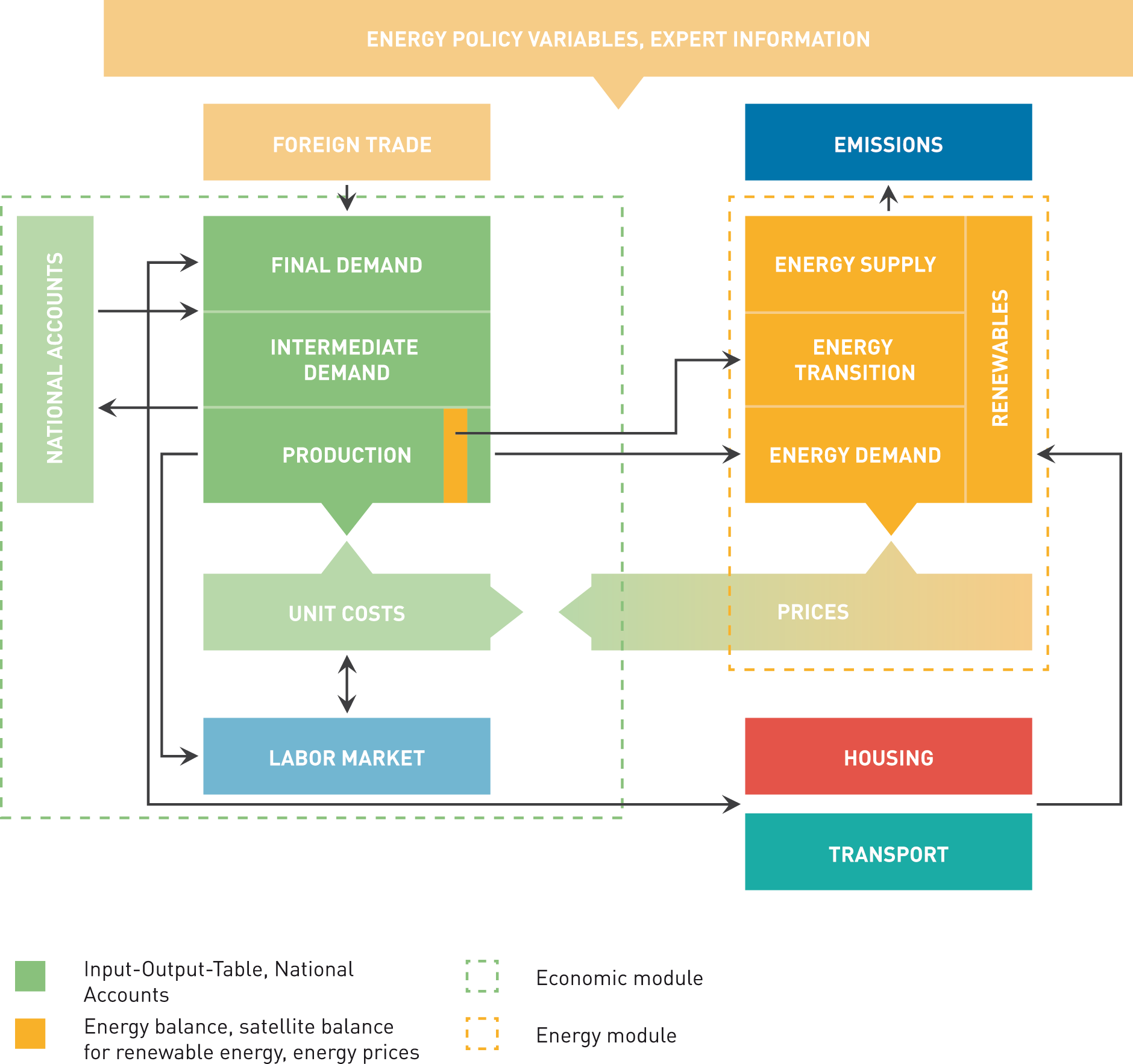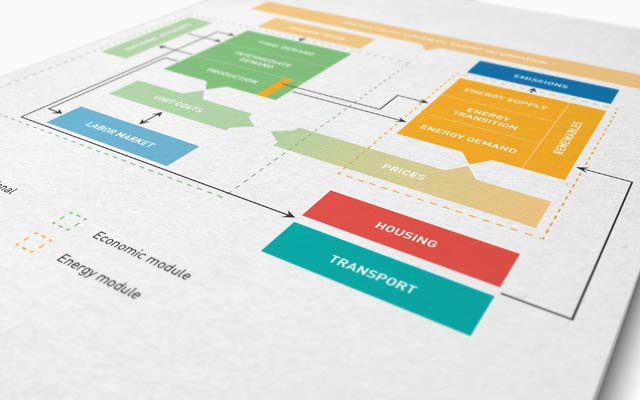PANTA RHEI
PANTA RHEI is an extended version of macroeconometric simulation and forecasting model INFORGE, designed for analysing questions in the environmental economics field. The name, a quotation from the Greek philosopher Heraclites, means “everything flows” and sums up our approach perfectly. It models long-term structural change in economic development and in environmental-economic interdependencies. In addition to comprehensive economic modelling with our core INFORGE model, it also models energy consumption, air pollution, transport and land use and housing to a high level of detail.
Links between model components are consistent. The transport module, for example, models fuel consumption in litres, which, multiplied by the price per litre, feeds into input demand from the manufacturing sector and demand for consumer goods. Changes to fuel tax rates result in changes to tax receipts and a broad range of economic adaptation processes.
However, changes in fuel prices also lead to changes in behaviour, which are also considered in our model. The model is resolved with full interdependence, meaning that the effects of a policy measure disseminate to all model variables simultaneously, and no effects are lost.
PANTA RHEI incorporates a multitude of macroeconomic variables drawn from various official statistics, in particular national and environmental-economic accounts (including input-output account) and provides sector-by-sector information on 63 industrial sectors. It also incorporates energy balances (including satellite balances for renewable energy) and German Federal Environment Agency emissions data.
The model has been used for a variety of purposes in recent years, including the 2010 Energy Scenario, to identify the net employment effects of renewable energy and to provide the basis for the progress report on energy transition monitoring.

Selected Publications
Projects


